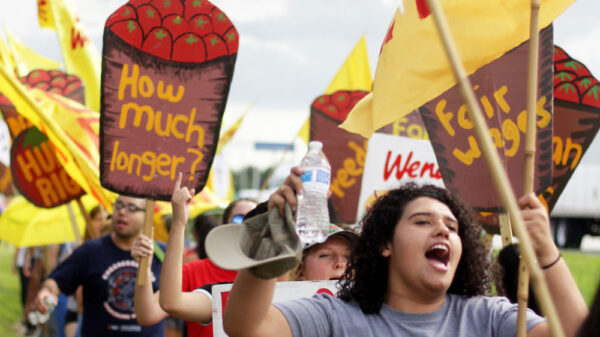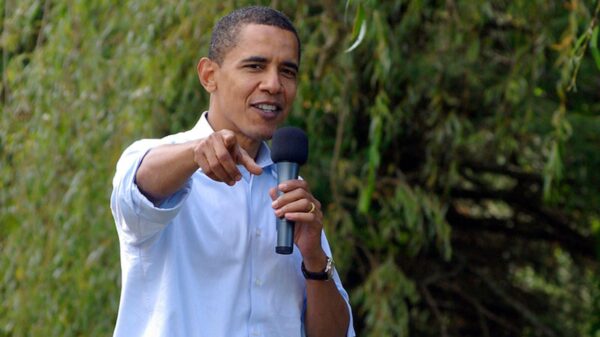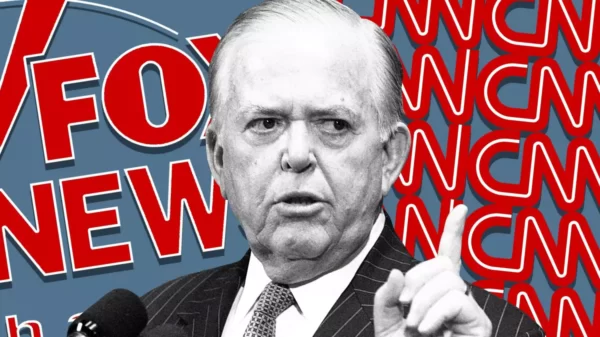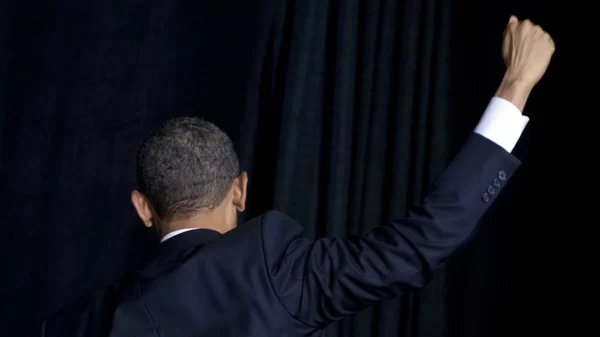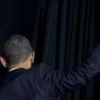What do Downtown Phoenix and Sand Castles in Dubai have in Common? Both are dismal failures and each is what Gordon leaves behind.
PHOENIX (By Jon Garrido, The Jon Garrido Network) February 22, 2010 — The first mirage in the desert comes to a predictable end. Dubai’s desert dream turns out to be a huge scam.
Phoenix development such as the downtown ASU campus is also a mirage and has already blown away squandered opportunities resulting in not enough revenue to maintain a large city.
Dubai and the City of Phoenix were two large cities on a parallel course driven to nothing more than a mirage or by a clever scam.

The Mirage in the Desert: the Sting begins to take Shape in Dubai
A man in a hurry, Sheikh Mohammed created rival building arms and investment managers and spurred them to compete with each other for land and capital. At one point he had at least three private-equity operations going at once under his aegis. These units invested heavily outside of Dubai at the top of the market, using borrowed money. Banks, too, bought into the Sheikh’s vision, or at least wanted to be included in the charmed circle.
The boom years of the early 21st century were good for many people, but perhaps no one enjoyed them more than Sheikh Mohammed bin Rashid al Maktoum, the ruler of Dubai. Stripped to its essentials, Dubai is a sweltering strip of sand blessed with a natural harbor known as the creek, which has been an entrepot for merchants and smugglers for centuries. Building on his father’s vision, Sheikh Mohammed turned Dubai into a 21st Century boomtown, luring western financiers and tourists with gleaming steel and glass towers, vast beaches, and green golf resorts.
Dubai is a clever blend of audacity and architecture, a shiny monument to the egos and ambition that turned a tiny emirate into a Middle East financial giant. Russian oligarchs stroll along man-made islands shaped like palm trees, and sheiks race down a ski slope built inside a shopping mall.
Cranes like countless arms moved across a skyline that grew more crowded by the day, if not the hour. The world’s tallest building went up, highways looped through the desert, the airport never closed. Dubai expanded into a commerce crossroads for Asia, Europe and America, a place of cigar salons, horse races, a seven-star hotel and suitcases full of money.
Charmed by Mohammed’s personality, marketing skills and assurances, deposed politicians, oil tycoons, powerful executives and investors poured in billions and willingly participated in Dubai’s real estate bonanza — no questions asked — as did professionals from Europe and Asia who flocked to the emirate, paying for condos and villas before building even started.
Lacking the oil reserves of the emirate’s neighbors, Dubai’s ruling family created a parallel economic reality fueled by real estate, international investment and the art of the possible. The emirate was fashioned into a sleek cityscape of startling images: Islam balanced against the seduction of Western capitalism, and tribal traditions brushing the fleeting trends of globalization.
Sheikh Mohammed lured investors with futuristic projects but now they’re left with $80 billion in debt, little confidence in Dubai, and growing questions.
When the confidence game came to an end, Sheikh Mohammed called for a standstill on debt repayments at one of his most important companies, Dubai World, rocking world markets and raising huge questions about the future of Dubai.
Dubai was always a confidence game — a momentum play. Unlike Saudi Arabia or Abu Dhabi, the hugely wealthy emirate to the West, Sheikh Mohammed had scant oil production to fuel his grandiose ideas. Instead he sold the world on his vision of Dubai as a hub for the Middle East, western Asia, and Africa, attracting investment from his wealthier neighbors — both Arabs and Iranians — and increasingly, from the West and Russia.
For a while, it worked.
Western bankers, investors, CEOs and politicians looking for Dubai Investors fell over each other to book space in his Dubai International Financial Center, a handsome if somewhat over-the-top real estate project aimed at being the Wall Street of the Gulf. They went to Dubai to worship the Sheikh, whom they treated as a sage.
The politician making the most trips to pay homage to the Sheikh was Phil Gordon, Mayor of the City of Phoenix, Arizona, who made 4 trips to Dubai in 2008 and 3 trips in 2009, with each trip done with great fanfare but in truth, each was nothing more than smoke and mirrors.
Phil Gordon played an important role in Dubai’s sting to show the world Dubai was able to invest billions around the world.
Gordon with no economic development or investment experience was easily duped in believing Dubai would invest in downtown Phoenix development but in truth — Dubai needed money and used a giant ponzi scheme similar to Bernard Madoff who duped thousands using an illegal pyramid scheme to attract money.
That Dubai has a serious problem was well known since 2007
When the credit crunch came, Dubai was badly exposed to known debt of $80 billion to $90 billion, and possibly even more. The Sheikh and his lieutenants, who had seemed masters at selling Dubai to the world, suddenly seemed inept.
It almost seems as if the ruler and those around him were in denial, not wanting to acknowledge the extent of their troubles — even to themselves.
In late 2008, Omar bin Sulaiman, the well-regarded governor of the financial center, was ousted. Three of the Sheikh’s closest advisors were removed from the board of the Investment Corp. of Dubai, which manages the government’s stakes in some of the big companies such as Emirates Airlines. These moves may have been designed to appease critics in Abu Dhabi and Dubai’s own worried merchant community.
In another sign of stress, last year the ruler appointed a frank-speaking young finance minister, Nasser al Shaikh, who tried to force some of Dubai’s big companies to sort out their problems. He was promptly fired.
This all came to a head on Nov. 25, 2009, when Dubai rocked world markets by announcing it would seek a standstill on debt repayments of ports operator and real estate developer Dubai World, the most troubled of state-controlled Dubai Inc. companies. The timing was horrendous, coming on the eve of an Islamic holiday, as well as U.S. Thanksgiving. Worried investors — who only recently had begun putting new money into Dubai on the presumption the worst was over — scrambled for information. Little was forthcoming. Reporters raced around the city, chasing press conferences that were never held.
It looks more like a combination of a lack of awareness and denial, which may well be making things worse than they need to be for Dubai and its ruler.
The Mirage disappears into the sand
Taking advantage of cheap credit, developers — some run by the government and other’s closely linked to it — built soaring skyscrapers and luxury residential compounds on man-made islands at a pace that outstripped real demand. Despite oversupply, real estate prices soared, in a mirror image of what happened in the United States before the subprime mortgage crisis sent the world into its worst recession in over six decades.
When the global financial crisis hit Dubai, prices collapsed by 50 percent in a year while the cheap funding dried up, meaning other projects either sat unfinished or were scrapped.
Apartment and office prices began tumbling across the Emirates as early as 2008. An estimated 400 building and real estate projects valued at $300 billion reportedly were put on hold throughout the country.
Now, as the emirate’s largest government-owned conglomerate, Dubai World, reels under the weight of its $60 billion in debts, Mohammed has retreated from the limelight.
Given how intertwined Dubai is with its ruler and members of the Maktoum dynasty, the fallout could create trouble for Mohammed, who must depend on hope the neighboring emirate of Abu Dhabi will step in with some sort of bailout as it did but not enough that creditors will see they have little choice but to agree to restructuring debt.
“It will be very difficult for Sheik Mohammed to survive this one,” said Christopher Davidson, an expert in Gulf affairs at Britain’s Durham University and author of two books on the Emirates. He said Mohammed misled investors by giving them the impression he had money to back his plans.
The global recession has left Dubai with miles of office space it can’t rent and reams of contracts it can’t honor. Thousands of foreign engineers, architects, bankers and laborers have been sent home. Like everything else that has epitomized Dubai for the last decade, even its debt is staggering: An estimated $80 billion, with nearly $60 billion of it held by Dubai World, a conglomerate of a number of state-controlled businesses.
News that Dubai wanted to suspend payments on its debt shook worldwide financial markets. S&P citing worries about Emirate’s willingness to back the companies’ debt, on Dec. 3, 2009, Dubai company ratings were cut to junk.
Dubai World’s problems are a window into those of Dubai, one of seven semiautonomous city-states that make up the United Arab Emirates. The conglomerate is Dubai’s biggest government-held company and has served as a key force behind the emirate’s growth — an expansion built on access to cheap and easy credit over the past decade.
But as the global meltdown battered equity markets, dried up credit sources and sent real estate prices into a free-fall, Dubai lost its momentum and projects were scrapped or canceled.
Real estate prices in Dubai fell by 50 percent in a year, meaning developers — many of whom are Dubai-owned — were left holding lavish homes and properties they could ill afford to sell at a discount and cover their obligations.
Loose oversight and light bureaucracy allowed money to flit in and out of banks and investment houses with little scrutiny. Al Qaeda and the Taliban, along with drug smugglers and gunrunners, have laundered money in Dubai’s financial institutions, according to U.S. investigators.
Savvy investors with required due diligence did not include Phil Gordon
The debt crisis facing the Dubai investment fund rattled investors beginning in 2008, raising doubts about the vitality of emerging economies. Investors, however, said as early as 2007, they had anticipated the deterioration of the country’s real estate bubble.
Obviously this cadre of savvy investors doing due diligence did not include Phil Gordon for Gordon made 4 trips to Dubai in 2008 and 3 trips in 2009 with each trip done with great fanfare but in actuality each was a show of smoke and mirrors.
After each Dubai trip, Gordon presented pictorial and verbal essays to local chamber of commerce groups flaunting success after success of his triumphs in promoting downtown Phoenix for investment.
All turn out to be a grand charade of ridiculous pretense and absurdly false.
The real truth is as Gordon wined and dined in Dubai only believing what he wanted to believe, some savvy investors were doing due diligence and spreadsheet investment analysis which gave them doubts about Dubai’s sustainability. Not only does Gordon have no vision, he lacks the skills required of a mayor.
Emerging markets have often seemed more vulnerable because their financial markets are not as deep and sophisticated as those in the West.
While that notion was proved wrong during the financial crisis, investors are still skittish about the developing world’s ability to handle a crisis. They need look no further than Bangkok (where Gordon now wants to visit, where a seemingly contained financial panic spiraled into a regional crisis more than a decade ago.
There is a fear that Dubai’s problems could rattle emerging market banks and financial institutions that have lent the emirate money.
During the boom, Dubai World and other fast-growing companies from the emirate invested heavily in companies and projects across Asia, building ports in India and Pakistan and taking stakes in Chinese banks. There is a fear that those projects and firms could suffer if Dubai authorities are forced to sell some of their holdings or put off investments to raise cash to repay their large debts.
A Sacrilegious Financial Mirage in the Desert
The investments were supposed to be blessed, and the bankers were desperately looking for more people to bless them.
Andrew Ross Sorkin wrote in his article in The New York Times’ Web site, “I was in Dubai in 2007 to cover an investment conference at a hotel along Jumeirah Beach. Hundreds of Western bankers bone up on the intricacies of the next new thing in financial products: Shariah-compliant investments.
They wanted to sell them to wealthy, oil-rich Muslim investors who needed a way to increase their fortunes but whose options were limited. Any investment vehicle needed to conform to the spirit of the Koran, which forbids any investments that pay interest. No mortgages. No bonds. No clever derivatives. Just tangible assets in the so-called real economy.
It was a big money pot — worth as much as $1 trillion that could yield billions in fees — and the bankers were determined to find a way in.”
Phil Gordon traveled back and forth to Dubai wanting to tap into the big money pot. If Dubai was in need of investments, then the only thing Gordon got was duped and played as part of smoke and mirrors to give the illusion Dubai had money to invest in other markets.
One discussion was led by a British banker from Barclays who had moved to the region to create an entire Shariah-compliance team. He shared tips about various ways to create “structured products” that would pass muster with Muslim investors. Sorkin wrote, “To me, the investments looked like bonds, walked like bonds and talked like bonds — but he never called them that. The bonds that Dubai World is in jeopardy of defaulting on, by the way, are Shariah-compliant sukuk. Just don’t call them bonds.”
The Sheikh was struggling to hire enough Shariah scholars, and he needed them to literally bless the investments — apparently there was a shortage of properly trained Islamic scholars who did this kind of work.
With the benefit of hindsight — and you didn’t need much — there were plenty of other signs back then Dubai was building a financial mirage in the desert.
For the last couple of years, the running joke on Wall Street was “Dubai, Mumbai, Shanghai or Goodbye.” If you were the C.E.O. of a troubled investment bank desperately looking for cash, you made a pilgrimage to one of those three cities with hat in hand. They were the places most likely to write a quick billion-dollar check; their eagerness should have also been a tip-off. Now you have to wonder about Mumbai and Shanghai, too. Are they next in line to take a fall?
With all the money pouring into the region, it would have been hard for any doomsday types to make themselves heard. But there were whispers here and there, pointing out the obvious. David Rubenstein, the co-founder of the private equity giant Carlyle Group who was in Dubai at the conference, remarked to Sorkin at the time: “You know, they don’t have any oil here.”
That fact was overlooked by many investors who didn’t want to miss out on a quick buck. What about the risk?
The Shariah Committee of the Accounting and Auditing Organization for Islamic Institutions, which is based in Bahrain, ended up changing the rules to make them stricter because of widespread abuse. As Mr. Buiter described them on his blog, “these were window-dressing pseudo-Islamic financial instruments that were mathematically equivalent to conventional debt and mortgage contracts.”
Blessings, alas, can only do so much.
Nero Fiddles while Rome Burns
Now as Gordon plays the lyre while Rome burns, Phoenix seniors loose their senior centers, library patrons loose access to public libraries, mothers have to pay 2% more for their food to feed their children, swimming pools and after-school programs have closed, buses run less frequently with tickets costing more, recreational and cultural points of pride have taken a hit as well. Half of the softball leagues and swim teams have been shelved. Fewer employees are staffing the Japanese Friendship Garden and Irish Cultural Center.
The list is endless!
Gordon now wants to fly to Asia on another junket paid for from taxes received from City of Phoenix taxpayers paying a new 2% tax on food being promoted by Gordon and Nowakowski.
When will this madness end? Hopefully Gordon will resign to run for Congress so Nowakowski can finish Gordon’s term as mayor.
Anything is better than Gordon, even Nowakowski who like Gordon has no economic development or investment experience, nor any clue on providing leadership and vision for what is needed to take Phoenix to a much higher level of becoming a world class destination city, but at least, Nowakowski is not as conniving as Gordon.
Phoenix desperately needs leadership.
Instant gratification is the driving force in Downtown Phoenix Development
Albert Einstein once said, “The definition of stupid is doing the same thing over and over and expecting different results. But they usually are so entrenched in their archaic beliefs that no amount of logic, commonsense or intelligent thought will sway them. More often than not, I give up with a feeling that some people are born stupid, some people achieve stupidity, and some people have stupidity thrust upon them. What bothers me most is when they try to spread their stupidity to others.”
Mayor Phil Gordon recently said, “Arizona State University’s and the University of Arizona’s downtown Phoenix campuses are a crucial part of the city’s future.” Gordon neglected to name Phoenix CityScape which is understandable because Gordon only gave Phoenix CityScape a paltry $120,000,000.
Einstein’s definition of Gordon is a perfect description of Gordon’s instant gratification concept of development for downtown Phoenix. With over a $1,000,000,000 in Phoenix taxpayer money squandered in downtown projects, none of the $1 Billion has produced any revenue for the City of Phoenix forcing Phoenix to now levy new taxes on low and moderate income persons to pay for Phoenix programs and services. A new tax on food is absolutely unforgivable.
Gordon is a dismal failure as the Mayor of Phoenix.
An new economic development staff with tourism experience in planning and development needs to replace every Phoenix staff person involved with economic development.
Meanwhile Phoenix braces for more cuts to services
Phoenix residents are encountering closed public libraries, swimming pools and after-school and senior centers.
While garbage trucks are still rolling through the city each week and firefighters still show up within minutes of a 911 call, Phoenix leaders and residents say they are seeing a gradual erosion of services that is expected to worsen in the coming year.
Over the past seven years, Phoenix has cut $360 million from its $1 billion-plus general-fund budget, which pays for most city services. About $156 million worth of service cuts were implemented this year.
But the dozens of cuts made last spring already are taking a toll on the city’s nearly 1.6 million residents, many of whom are relying on city services now more than ever.
Now buses are running less frequently and riders are paying more for a ride.
Phoenix’s recreational and cultural points of pride have taken a hit as well. Half of the softball leagues and swim teams have been shelved.
The city’s balance sheet is so out of whack because Phoenix’s sales-tax revenue remains about 20 percent lower than two years ago. State-shared income-tax revenue is forecast to be about 35 percent less than two years ago because of layoffs, pay cuts and furloughs. And the cash-starved Arizona Legislature is poised to take a big chunk of Phoenix’s $378 million-a-year state-shared-revenue fund to solve its own fiscal problems.
Phoenix’s budget troubles came into sharper focus City Manager David Cavazos proposed a plan that would help close Phoenix’s $242 million deficit, balancing the general-fund budget through fiscal year 2011.
Cavazos’ proposal would eliminate 1,379 of the city’s 16,000 positions, though a third of the targeted positions are vacant.
Six of the city’s 15 library branches, five of its senior centers and numerous sports complexes and community centers would be shuttered. Funding for the arts and after-school programs would be slashed. And bus routes and light-rail hours would be reduced.
The proposed cuts come just a year after city leaders slashed $156 million in programs and services to help close a record $270 million deficit.
Public-transit users would be hit especially hard. Proposals include cuts to dial-a-ride, a program mostly used by seniors and the disabled, as well as eliminating and reducing the frequency of bus routes.
Separately, the city could cut its share of funding to light rail by more than $1 million, canceling late-night weekend service and increasing wait times during some weekday hours.
Phoenix’s sales- and income-tax collections are expected to decline for a third year in a row this fiscal year, leaving the budget out of balance. And city sales-tax revenue will be less than what was collected in fiscal 2005.
The proposals, however, are far from final. A food tax being eyed by the City Council could generate an extra $50 million a year and eliminate some cuts. So could furloughs and other concessions from the seven employee unions now in contract negotiations with the city.
Residents will have an opportunity to voice their concerns about the budget during 15 public hearings throughout the city. The council will vote on a revised budget on March 2, with cuts set to take effect in April.
Some content from Business Week, AP, Wire Services, Wall Street Journal, Time, London Times, Economist, International Herald Tribune and Le Monde.












